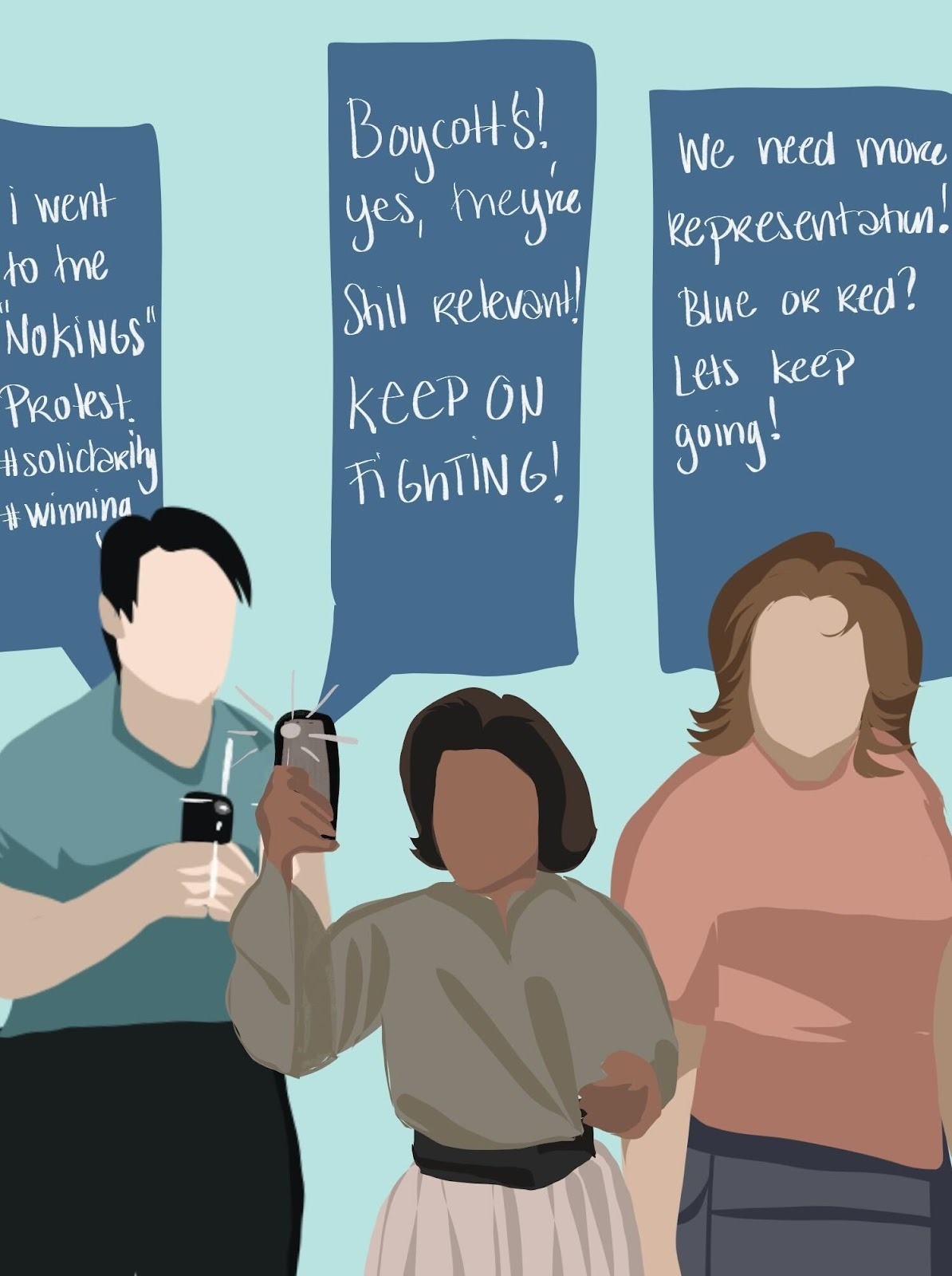Flags adorning our porches, bumper stickers eliciting the honks of others — whether in support or outrage —- political participation does not escape the human instinct to fit in. However, with our everyday lives becoming so closely influenced by our hand-held best friend, social media has transformed our political allegiances into a performance. For the younger generation, this new phenomena has introduced the rest of the world to online political activism in the form of hashtags, reposts and political bandwagoning.
This new age of political conversation on social media algorithms poses a question of genuinity for many. Yet, must authenticity and performative actions be mutually exclusive? While there are still instances of targeted activism that work to actively marginalize or spread misinformation, the value of political engagement should not depend on a set motive.
Denouncing all forms of online political participation echoes historical rejections of civil disobedience and undermines the exercise of free speech and protest. Instead, social media should be recognized for its potential to amplify voices.
Judging political action as performative is arguably subjective. What can look like an empty gesture to one may translate as meaningful political activism to another. Such civic engagement isn’t new; our history clearly defines several instances of civil disobedience: boycotts, walkouts, marches and sit-ins. During the Civil Rights Movement, critics of Martin Luther King Jr. described his advancements as disruptive, a word negatively connotated with the idea that his cause did not call for urgency. Yet, was “disruptive” meant to cast aside the demands of the civil rights movement — much like how “performative” is used today to devalue online political activism?
There are countless reminders — both current and of decades past —- that emphasize the crucial need for participatory politics in democracies, galvanizing our rights towards effective policy changes by raising awareness, building a community and pressuring existing institutions towards reformation. Regardless of how political participation is perceived — digital or not — it is, in all forms, a reminder of our preservation of democracy. It may be that if people continue to discriminate against online political conversations, they become no different than those who downplayed the impact of historical civil disobedience.
Political engagement through online algorithms make for a far greater ease to understand and access information, all within popular social media platforms. However, these attitudes are not exclusively online or driven by the same sense of civic duty that would be observed in any public display of political activism.
Researchers Darren G. Lilleker and Karolina Koc-Michalska found that extrinsic motivations are largely what motivate people to perform the way they do online. While people have labeled such motives as performative, those who participate online have also shown increased normality around political conversations in a way that an intrinsic motivation could not accomplish alone. Perhaps this is simply how society has adjusted to political discourse through a modern lens — with the benefit of an interwoven network in the palm of their hand. In such a case, there appears to be no difference between online discussions on modern politics today compared to offline participation in the 21st century during the Civil Rights Movement.
If the performative form of political engagement were removed today, liking, sharing and reposting would be promptly eliminated. However, without these actions, known to arguably be our cornerstones of daily digital interactions, there is a risk of eradicating the instantaneous catalyst of most conversations — including political ones.
When we think of an environment free of such online political action, performance legitimacy is highlighted as the idea that a government derives its legitimacy from the visible approval of its people. Online political participation is such an example, reinforcing its validity through every like, share and comment — as long as the government allows it. These everyday actions on social media cumulatively give credence to a modern form of civic engagement and its importance for political participation in modern democracy.
The human tendency to belong to and participate in a community is ubiquitous — now more than ever in a polarized age of politics. Even if online forms of activism are perceived as performative, it still represents a decision made to engage in the political sphere rather than remaining passive. Thus, voicing your political opinions online — regardless of motive — adds to a collective sense of awareness. Even performative politics is better than silence. If people are already speaking up they might as well go all in.
Michaela Okuyama is an Opinion Intern for the fall 2025 quarter. She can be reached at okuyamam@uci.edu.


